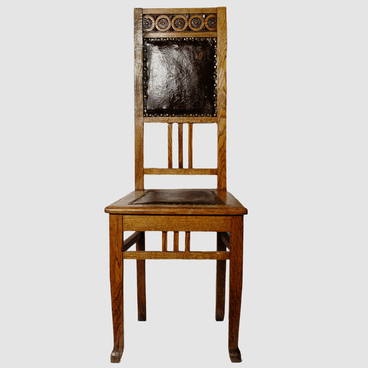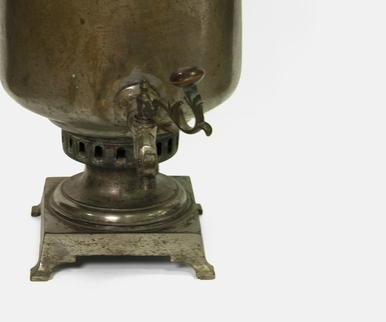The period of Maxim Gorky’s life in Kazan is connected with friends of his youth, who greatly influenced his personality. One of them was Andrey Stepanovich Derenkov, “the owner of a small bakery hidden at the end of a narrow, impoverished street.”
In his autobiographical novel “My Universities”, Gorky described his “old pal” using these words,Andrey Derenkov’s bookcase
A man with a withered arm, Derenkov had intelligent eyes and a kind face framed in a fair beard. He owned the fullest collection of banned books in town and made them available to the Kazan students and others interested in the revolutionary movement.
Gorky, who was still known as Alexey Peshkov back then, often visited Derenkov’s house, where he read books. Followers of Narodnaya Volya (People’s Will) movement — young people with radical views — often held meetings at Derenkov’s. While delivering fresh rolls around the city, Gorky also distributed revolutionary leaflets. Soon the secret organization was discovered by the police and many of the students were arrested.
Andrey Derenkov’s business was booming: he opened a bakery, where Gorky lived and worked. The first bakery was on Bolshaya Lyadskaya Street, which is currently known as Gorky Street. In the basement of the stone house, the young Gorky worked as a bakery assistant, kneading dough. In 1940, this building was transformed into the Gorky Museum, with the oven reconstructed on the old foundation and the equipment put in the original places. After the Great Patriotic War, Andrey Derenkov came to Kazan from Siberia and helped to reconstruct the bakery.
Over time, Derenkov’s bakery was moved to a more spacious and comfortable place, not far from Teatralnaya Square; unfortunately, the building has not been preserved. Andrey Derenkov kept an active correspondence with Maxim Gorky, who had already become a famous writer. After the Russian Revolution of 1917, Derenkov lost all his property and was forced to pay large taxes. Despite Gorky’s financial support, he lived in poverty. Derenkov asked the writer to help him return his passport and reverse his status of “lishenets” (a disenfranchised person), and Gorky always came to his rescue.
Andrey Derenkov lived for almost a century. He died in the home of his daughter Taisiya in the Kemerovo region. The displayed wooden bookcase stood near his bed: Derenkov had a penchant for books and collected them throughout his life.



